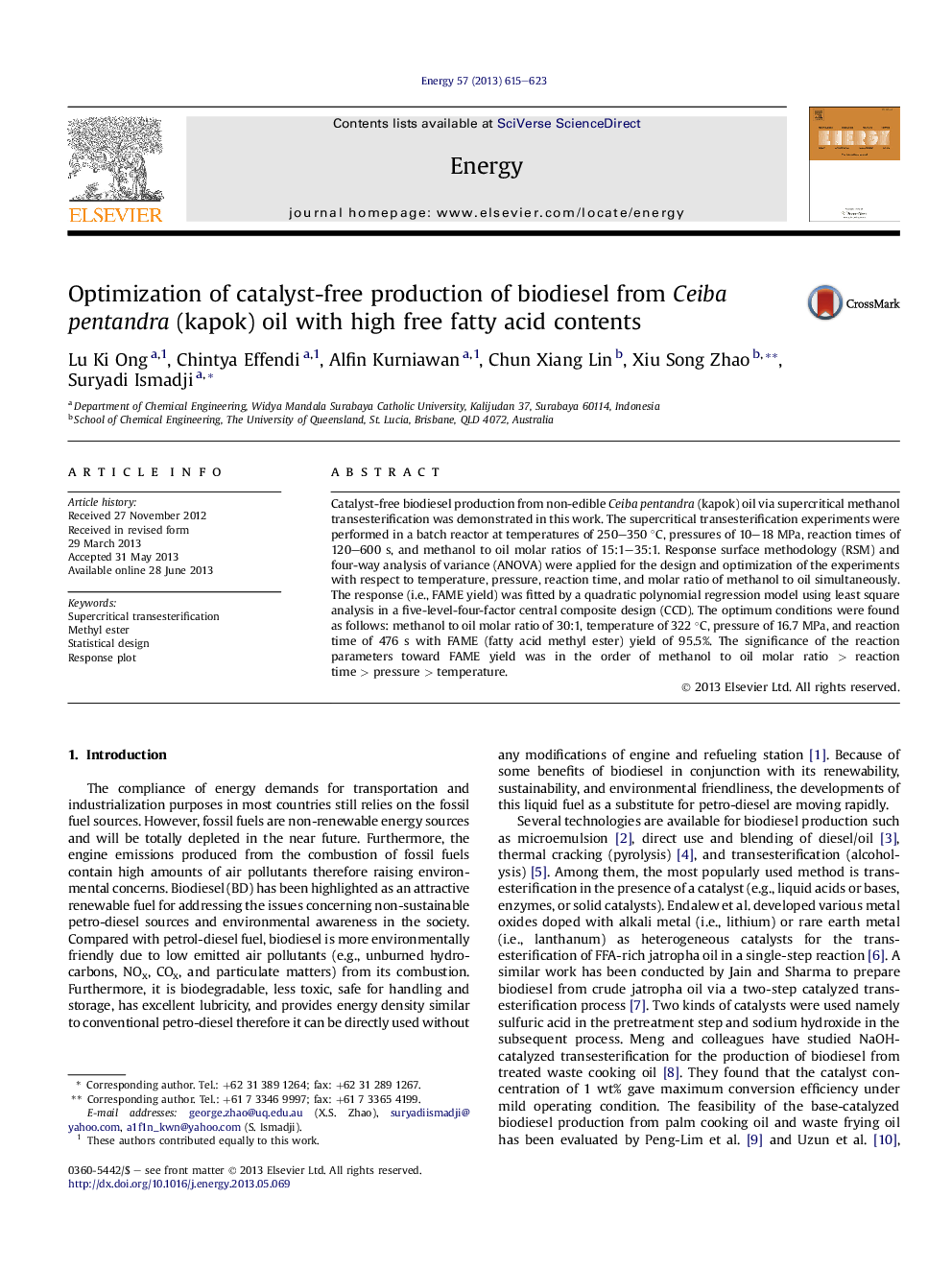| Article ID | Journal | Published Year | Pages | File Type |
|---|---|---|---|---|
| 1733104 | Energy | 2013 | 9 Pages |
•Transesterification of non-edible kapok oil into biodiesel via a non-catalytic route.•Methanol to oil molar ratio, temperature, pressure, and reaction time were optimized.•Experimental design in a five-level-four-factor central composite design.•Application of quadratic polynomial model for fitting the response (FAME yield).
Catalyst-free biodiesel production from non-edible Ceiba pentandra (kapok) oil via supercritical methanol transesterification was demonstrated in this work. The supercritical transesterification experiments were performed in a batch reactor at temperatures of 250–350 °C, pressures of 10–18 MPa, reaction times of 120–600 s, and methanol to oil molar ratios of 15:1–35:1. Response surface methodology (RSM) and four-way analysis of variance (ANOVA) were applied for the design and optimization of the experiments with respect to temperature, pressure, reaction time, and molar ratio of methanol to oil simultaneously. The response (i.e., FAME yield) was fitted by a quadratic polynomial regression model using least square analysis in a five-level-four-factor central composite design (CCD). The optimum conditions were found as follows: methanol to oil molar ratio of 30:1, temperature of 322 °C, pressure of 16.7 MPa, and reaction time of 476 s with FAME (fatty acid methyl ester) yield of 95.5%. The significance of the reaction parameters toward FAME yield was in the order of methanol to oil molar ratio > reaction time > pressure > temperature.
